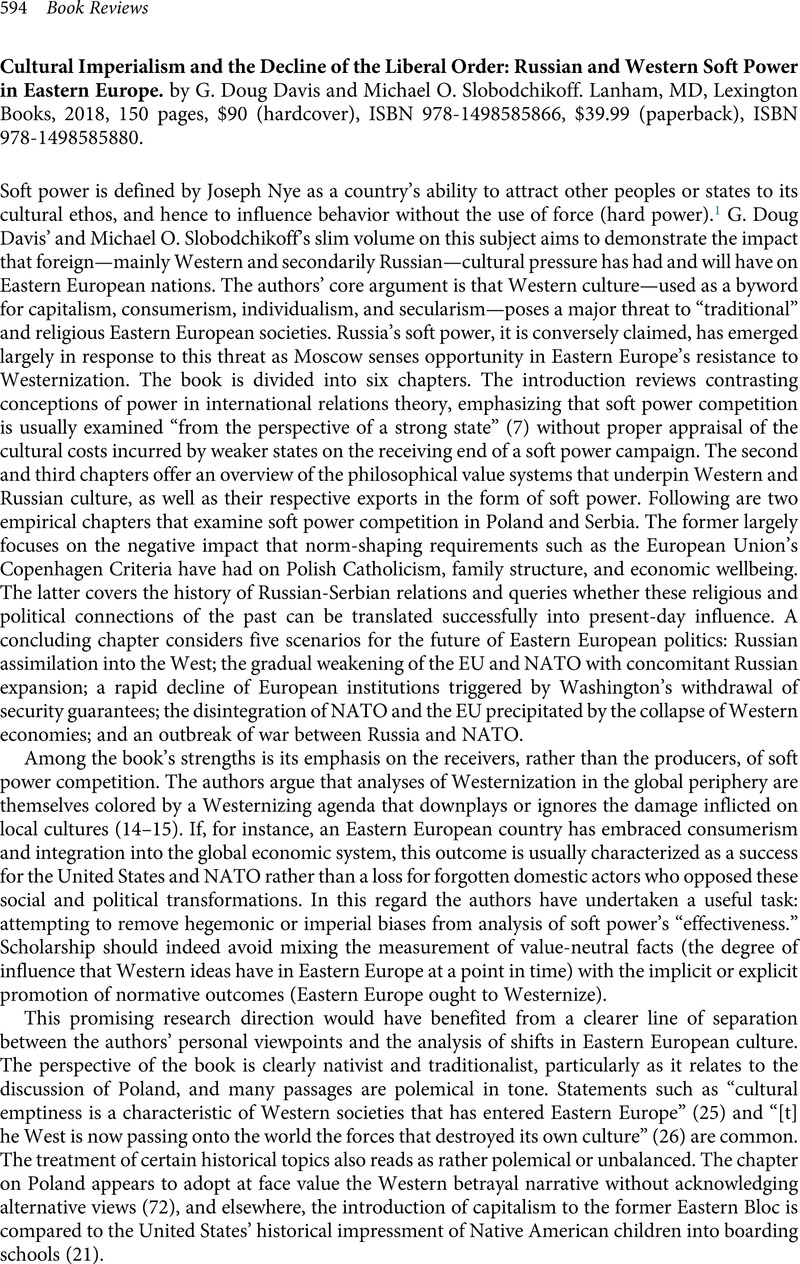No CrossRef data available.
Article contents
Cultural Imperialism and the Decline of the Liberal Order: Russian and Western Soft Power in Eastern Europe. by G. Doug Davis and Michael O. Slobodchikoff. Lanham, MD, Lexington Books, 2018, 150 pages, $90 (hardcover), ISBN 978-1498585866, $39.99 (paperback), ISBN 978-1498585880.
Review products
Published online by Cambridge University Press: 12 January 2021
Abstract

- Type
- Book Reviews
- Information
- Copyright
- © Association for the Study of Nationalities 2021
References
Notes
1 Nye, Joseph S., Soft Power: The Means to Success in World Politics (New York: PublicAffairs, 2004), x.Google Scholar
2 Stefano, Braghiroli and Andrey, Makarychev, “Russia and its supporters in Europe: trans-ideology á la carte?” Southeast European and Black Sea Studies 16, no. 2 (2016): 213–33Google Scholar; Steve, Abrams, “Beyond Propaganda: Soviet Active Measures in Putin’s Russia,” Connections 15, no. 1 (2016): 5–31 Google Scholar; Anton, Shekhovtsov, Russia and the Western Far Right (Abingdon, UK: Routledge, 2018)Google Scholar; Media, Ajir and Bethany, Vailliant, “Russian Information Warfare: Implications for Deterrence Theory,” Strategic Studies Quarterly 12, no. 3 (2018): 70–89.Google Scholar
3 Gene, Sosin, “Goals of Radio Liberty,” in Cold War Broadcasting: Impact on the Soviet Union and Eastern Europe, ed. Johnson, A. Ross and Parta, R. Eugene (Budapest: Central European University Press, 2010), 17–24 Google Scholar; Nicholas, J. Schlosser, “Creating an ‘Atmosphere of Objectivity’: Radio in the American Sector, Objectivity and the United States’ Propaganda Campaign against the German Democratic Republic, 1945-1961,” German History 29, no. 4 (November 2011): 610–627 Google Scholar; Parta, R. Eugene, Discovering the Hidden Listener: An Empirical Assessment of Radio Liberty and Western Broadcasting to the USSR during the Cold War (Stanford, CA: Hoover Institution Press, 2013).Google Scholar



